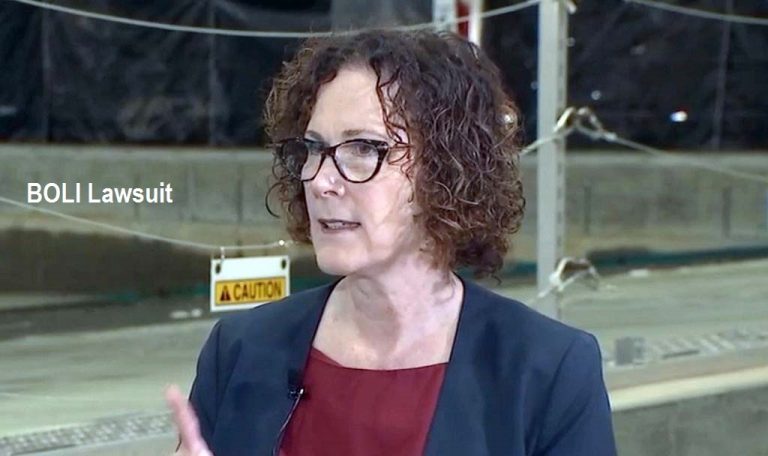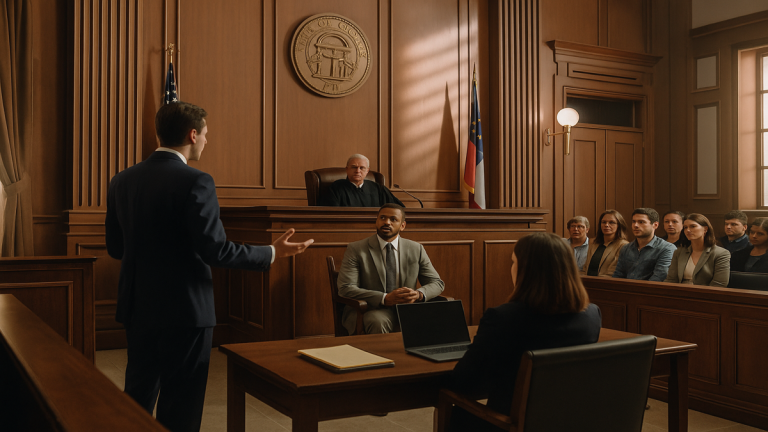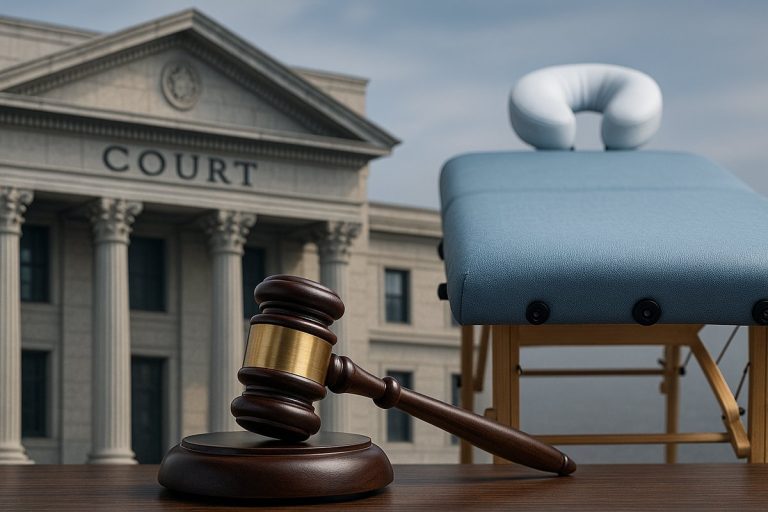Sex abuse lawsuits against the Illinois Youth Center Joliet have revealed decades of cruelty and cover-ups. Victims kept quiet for years. They were scared. They were alone. Now, over 900 survivors have come forward. Their voices are demanding justice. This is not a story from far away. The incident occurred at a state-run juvenile facility in Illinois. The victims were just children, locked up and then preyed on by people who were supposed to protect them.
These lawsuits are about more than money. They represent pain, silence, and the long road toward healing. Many plaintiffs say the abuse changed their lives forever. They now live with trauma, broken trust, and fear. Sex abuse lawsuits against Illinois Youth Center Joliet are forcing everyone to look closely at the past. These stories aren’t easy to hear. But they must be told. Justice depends on truth, and truth depends on being heard.
How This Legal Storm Began
The first lawsuits were filed in 2024. Ninety-five survivors came forward. Each one shared a piece of a larger puzzle. They described attacks that spanned decades. Many spoke of repeated sexual abuse. Some said they were raped. Others recalled being forced to undress, touched, and violated. This wasn’t one bad officer. This was a culture of silence. Guards abused their power. Supervisors ignored complaints. State leaders didn’t act.
Soon after, more survivors came forward. In 2025, another 107 lawsuits were added. Many named Illinois Youth Center Joliet specifically. The total number of known survivors passed 900. The courts are overwhelmed. Legal teams are working around the clock. Victims want more than settlements. They want truth. They want the people responsible to be named, questioned, and punished.
Why Illinois Youth Center Joliet Became Ground Zero
Illinois Youth Center Joliet was not like other facilities. It held some of the most vulnerable youth in the state. Many had no family support. They were isolated, frightened, and easily controlled. Staff had unchecked power. They locked doors, controlled phone calls and decided who got food, clothes, or time outside. This power made it easy to groom children. Some staff used kindness to gain trust. Others used fear.
The environment at Joliet allowed abuse to thrive. There were no outside cameras. No regular inspections. Few staff ever reported their coworkers. Those who spoke up were ignored or punished. The lawsuits claim that high-level officials knew. Some reports warned of inappropriate behavior. Others flagged rising complaints. But nothing changed. That silence let predators continue unchecked.
What Survivors Say Happened
The stories are graphic. But they are consistent. One survivor said he was raped repeatedly over six months. Another was assaulted in a locked isolation cell. A girl named only by her initials described being stripped, touched, and mocked. Many survivors said the abuse began soon after arrival. Some described guards offering favors—extra food or better beds—in exchange for sex. Others were beaten after refusing to comply.
A number of survivors say they were targeted because of their quiet nature. Some were abused in front of other children. Others were told their families would never believe them. The trauma didn’t stop after release. Many survivors now suffer from PTSD. Some struggle with addiction. Others cannot hold jobs or maintain relationships. The lawsuits may bring financial relief. But the deeper wounds remain.
Legal Battles Continue to Build
Survivors filed suits in both state and county courts. Most claim damages up to two million dollars—the maximum allowed. But money isn’t the main goal. Many say they want names revealed. They want public admissions of guilt. The Illinois Attorney General’s office has tried to dismiss some suits. Their argument? Some claims came too late. But advocates push back. They say victims couldn’t speak sooner. The trauma kept them silent.
Judges are now deciding how to proceed. Legal teams expect more cases to surface. Each new suit adds pressure to the state. Leaders are being asked hard questions: What did they know? Why didn’t they act? Lawmakers may soon face hearings. If the cases grow, they could trigger new reforms. That’s what many survivors want—to protect future children from suffering the same fate.
The Numbers Behind the Crisis
In 2013, a U.S. Department of Justice report listed Illinois as one of the worst states for juvenile sexual abuse. Around 15% of children in custody reported being assaulted. Joliet had some of the highest abuse rates. Even before the lawsuits, warning signs appeared. Staff turnover was high. Training was weak. Complaints went unresolved. Each problem created more space for abuse to spread.
Despite these numbers, little changed. That’s what makes these lawsuits so powerful. They highlight how data alone won’t fix deep problems. Action must follow. Victims need more than apologies—they need reforms that work.
Timeline of Illinois Youth Center Joliet Sex Abuse Lawsuits
Illinois Youth Center Joliet operated as a state juvenile detention facility for decades. Alleged sexual abuse occurred at the facility from the late 1990s through the early 2000s. Survivors later reported abuse involving staff members during detention.
Illinois Youth Center Joliet officially closed on June 28, 2013. The closure did not eliminate legal responsibility for past conduct. Abuse allegations continued to surface after the facility shut down.
Illinois expanded civil filing rights for childhood sexual abuse on August 20, 2019. The law extended the time survivors could bring claims. This change allowed many former detainees to pursue lawsuits.
A major wave of civil lawsuits began on May 21, 2024. Former detainees filed coordinated claims alleging sexual abuse and institutional failure. These lawsuits named state agencies and related parties.
Additional claims followed throughout October and November 2024. Courts accepted filings tied to multiple Illinois youth centers. The number of plaintiffs continued to rise.
Lawsuit filings increased again in January 2025. Courts continued managing the growing docket. The litigation remains active as of March 2025.
Current Legal Status
Sex abuse lawsuits against Illinois Youth Center Joliet remain active. Former detainees continue filing civil claims against the State of Illinois. These lawsuits allege sexual abuse and institutional negligence. Many cases involve conduct that occurred over several decades.
Courts continue managing these claims alongside other Illinois youth center cases. Attorneys gather records and survivor testimony. No global settlement has resolved the litigation. The cases remain ongoing as survivors seek accountability.
Illinois Statute of Limitations
Illinois law allows extended filing periods for childhood sexual abuse lawsuits. Survivors may file civil claims years after the abuse occurred. The law considers the survivor’s age and discovery of harm. These provisions allow many former detainees to file lawsuits now. Filing deadlines vary based on individual circumstances. Legal review helps confirm eligibility under current Illinois law.
Potential Compensation in IYC Joliet Sex Abuse Lawsuits
Survivors seek financial compensation through these lawsuits. Claims often include damages for emotional distress and psychological trauma. Many plaintiffs also seek compensation for long-term harm. Courts may consider abuse severity and duration. Institutional negligence may affect damage awards. Compensation aims to address lasting effects on survivors’ lives.
Support and Reporting Resources for Survivors
Survivors of juvenile detention abuse have access to support resources. Legal counsel can explain rights and filing options. Advocacy organizations provide guidance and assistance. Reporting options remain available through legal and state channels. Support services prioritize survivor safety and recovery. Access to resources plays a critical role in healing.
What the Survivors Want Now
These survivors are not just looking for compensation. They want full transparency. They want to know who was in charge when the abuse happened. Also, they want police investigations and want arrests where needed. They also want lawmakers to act. That means regular audits of youth centers. It means mental health services for current and former inmates. It means strict hiring standards for anyone working with children.
Some survivors are asking for memorials—public spaces where their stories are honored. Others are pushing for educational campaigns. They want the public to understand what happened at Joliet. Most of all, they want no more silence. They want Illinois Youth Center Joliet to be remembered—not just for abuse, but for the brave people who stood up and spoke out.
What the Law Says
Illinois law gives survivors deadlines for reporting childhood sexual abuse. For abuse before 2014, survivors had to file by age 28. For abuse after that, the deadline is age 38. But many say these rules are unfair. Some survivors didn’t remember the abuse clearly until years later. Others were too scared to speak up.
Lawmakers may revise the statute of limitations. Advocates are calling for extensions. They argue that trauma doesn’t follow a schedule. The law should reflect that. Until then, survivors race the clock. Every week matters. Every delay could mean one less chance at justice.
What Might Happen Next
These lawsuits are only the beginning. Experts believe more victims will step forward. As news spreads, others may realize they’re not alone. The courts will decide what happens to the current cases. If judges rule in favor of the survivors, the state could pay hundreds of millions.
But the larger impact may come through reforms. The lawsuits have already sparked new conversations. Journalists, lawmakers, and citizens are asking hard questions. This case may lead to stronger protections, new laws, and better systems. But only if people stay engaged. Only if leaders act.
Quick Facts About Sex Abuse Lawsuits Against Illinois Youth Center Joliet
| Category | Details |
|---|---|
| Facility Name | Illinois Youth Center Joliet |
| Time Period of Alleged Abuse | 1990s to 2018 |
| Total Number of Survivors | Over 900 |
| Abuse Allegations | Rape, forced sex acts, beatings, strip searches, threats |
| First Major Lawsuit Filed | May 2024 |
| Largest Case Filing | 107 new cases in July 2025 |
| State Legal Limit per Survivor | $2 million (Court of Claims cases) |
| Facility Status | Closed in 2013 |
| DOJ Abuse Ranking (2013) | Illinois ranked among the highest in youth staff abuse rates |
| Main Legal Goal of Survivors | Accountability, exposure, public reform |
How You Can Help
Do you know someone who spent time at Illinois Youth Center Joliet? Encourage them to speak with legal experts. Share information. Support survivors online and offline. Talk about this issue. Don’t let silence win again. Share articles. Start conversations. Push your local representatives for action.
If you’re a survivor, know this: you are not alone. You have rights. There are people who believe you. There are legal paths still open. Reach out to trusted lawyers. Join others fighting for justice.
Why the Truth Matters
Sex abuse lawsuits against Illinois Youth Center Joliet matter because they bring hidden pain to light. These cases demand action from courts, lawmakers, and the public. Survivors deserve more than quiet sympathy. They need real change. The lawsuits are helping rewrite the story of what happened inside those walls. They are exposing a culture of silence, abuse, and failure.
You can help. Read. Speak. Share. Support those who lived through this nightmare. Hold your leaders accountable. Demand better. These lawsuits aren’t just about what happened in the past. They’re about building a safer future. For every child. Everywhere.
Frequently Asked Questions (FAQs)
What are the sex abuse lawsuits against Illinois Youth Center Joliet about?
Survivors allege Illinois Youth Center Joliet staff sexually abused them. These lawsuits seek accountability from staff and the state.
How many survivors have filed lawsuits so far?
Over 900 people have filed lawsuits. Many say the abuse occurred between the 1990s and 2018.
What types of abuse are claimed in the lawsuits?
Survivors describe rape, forced sex acts, beatings, strip searches, threats, and emotional abuse by staff members.
Why did most survivors wait so long to come forward?
Many say trauma, fear, and shame kept them silent. Others lacked legal support or did not know they could sue.
Can more survivors still file claims?
Yes. Depending on their age and the year of the abuse, some survivors may still qualify under current Illinois law.
Disclaimer
This content provides general legal information only. It does not offer legal advice or create an attorney-client relationship. Laws and legal outcomes vary by situation. Readers should consult a qualified attorney regarding specific legal matters.
Ayesha Awais is a content writer for JudicialNexus.com, covering accident reports, injury-related news, lawsuits, and public safety updates. All content is informational in nature and based on publicly available sources.




